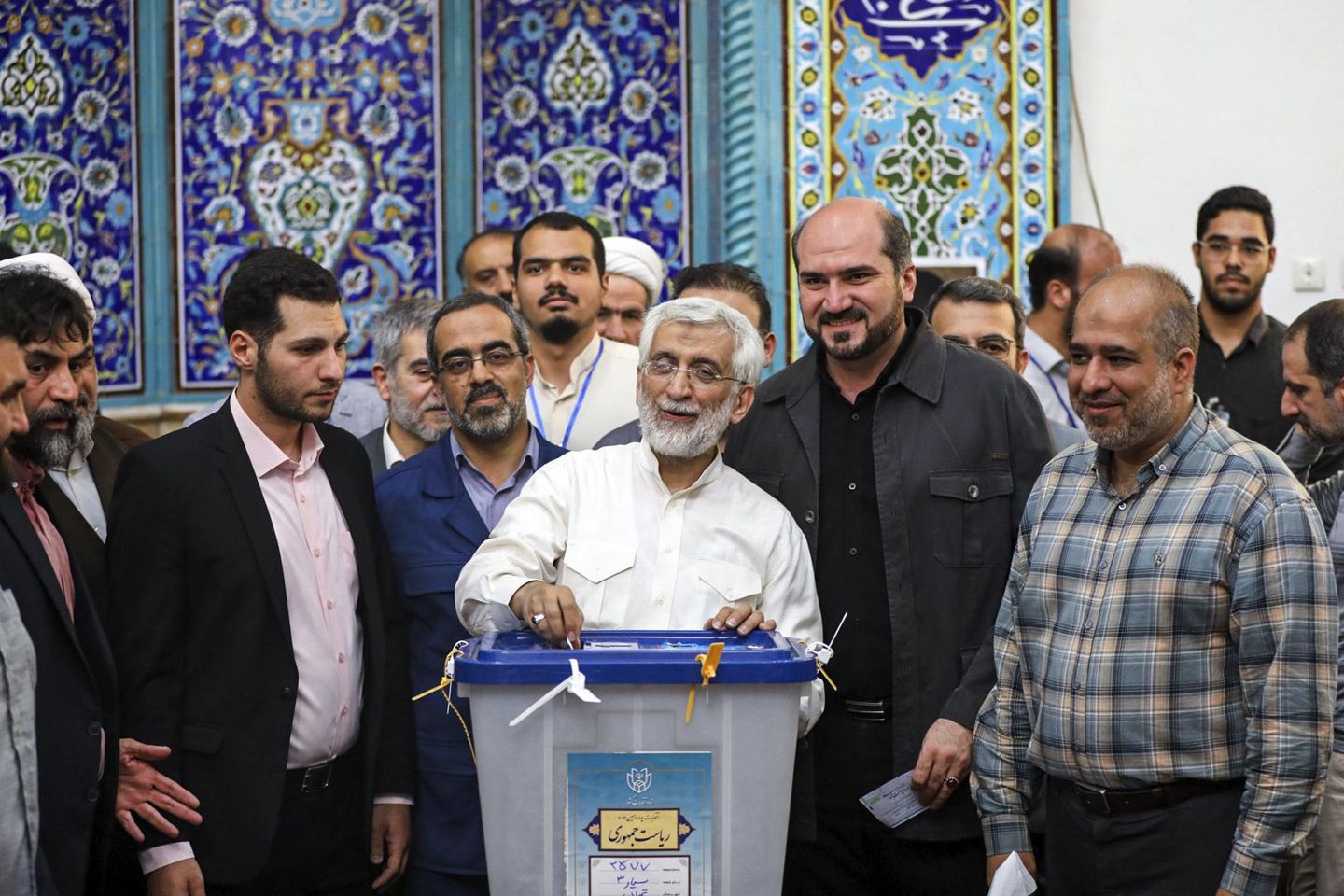The Iranian presidential election is a pivotal moment in the country’s political landscape, as the results could have far-reaching implications for both domestic and international affairs. The initial results, which were released on Saturday, showed a tight race between two frontrunners: reformist candidate Masoud Pezeshkian and hard-liner Saeed Jalili. The lead in the race has been seesawing between the two men, with both candidates garnering significant support from their respective base of supporters.
Masoud Pezeshkian, a reformist candidate, has been a prominent figure in Iranian politics for many years. He has garnered support from those who are looking for a more moderate and progressive leader to guide the country forward. Pezeshkian has been vocal about his plans to improve relations with the international community and to address the economic challenges facing Iran. His platform has resonated with many Iranians who are eager for change and reform within the country.
On the other hand, Saeed Jalili is a hard-liner who has strong support among conservative factions in Iran. Jalili has taken a hardline stance on issues such as nuclear negotiations and foreign policy, advocating for a more confrontational approach with the West. His supporters see him as a strong leader who will defend Iran’s interests and uphold the country’s values in the face of external pressure.
As the results of the election continue to unfold, it is becoming increasingly clear that a runoff vote may be necessary to determine the final outcome. With the race between Pezeshkian and Jalili too close to call, both candidates are preparing for a potential second round of voting to determine the next president of Iran.
The prospect of a runoff vote has added a new level of excitement and uncertainty to the election, as both candidates and their supporters gear up for a fierce battle to secure the presidency. The outcome of the election will have significant implications for the future direction of Iran, as well as its relations with the international community.
The Iranian presidential election is being closely watched by observers around the world, who are eager to see how the results will impact the country’s political landscape. The outcome of the election could have far-reaching implications for Iran’s domestic policies, as well as its role in regional and global affairs.
In recent years, Iran has faced a number of challenges, including economic sanctions, political unrest, and international isolation. The next president will have to navigate these challenges and work towards finding solutions that benefit the Iranian people and promote stability and prosperity in the country.
The election has also highlighted the deep divisions within Iranian society, with supporters of both candidates expressing strong opinions and emotions about the future of the country. The outcome of the election will not only determine who will lead Iran for the next term, but also how the country will address its internal divisions and work towards a more unified future.
As the election results continue to unfold, it is clear that both candidates have strong support bases and are vying for the opportunity to lead Iran into a new era. The final outcome of the election remains uncertain, but one thing is clear: the Iranian people are engaged and passionate about the future of their country, and are eager to see how the election will shape the path forward.
The Iranian presidential election is a critical moment in the country’s history, as it will determine the direction of Iran’s domestic and foreign policies for the years to come. The outcome of the election will not only impact the Iranian people, but also have implications for the broader Middle East region and the international community.
As the race between Masoud Pezeshkian and Saeed Jalili continues to unfold, all eyes are on Iran to see how the election will shape the future of the country. The next president will have a challenging task ahead of them, as they work to address the pressing issues facing Iran and navigate the complex dynamics of domestic and international politics.
In the coming days, as the results of the election are finalized and a potential runoff vote is held, Iran will be at a crossroads. The decisions made by the Iranian people in this election will have lasting repercussions for the country and its relationship with the world. The stakes are high, and the outcome of the election will be closely watched by observers around the globe.









